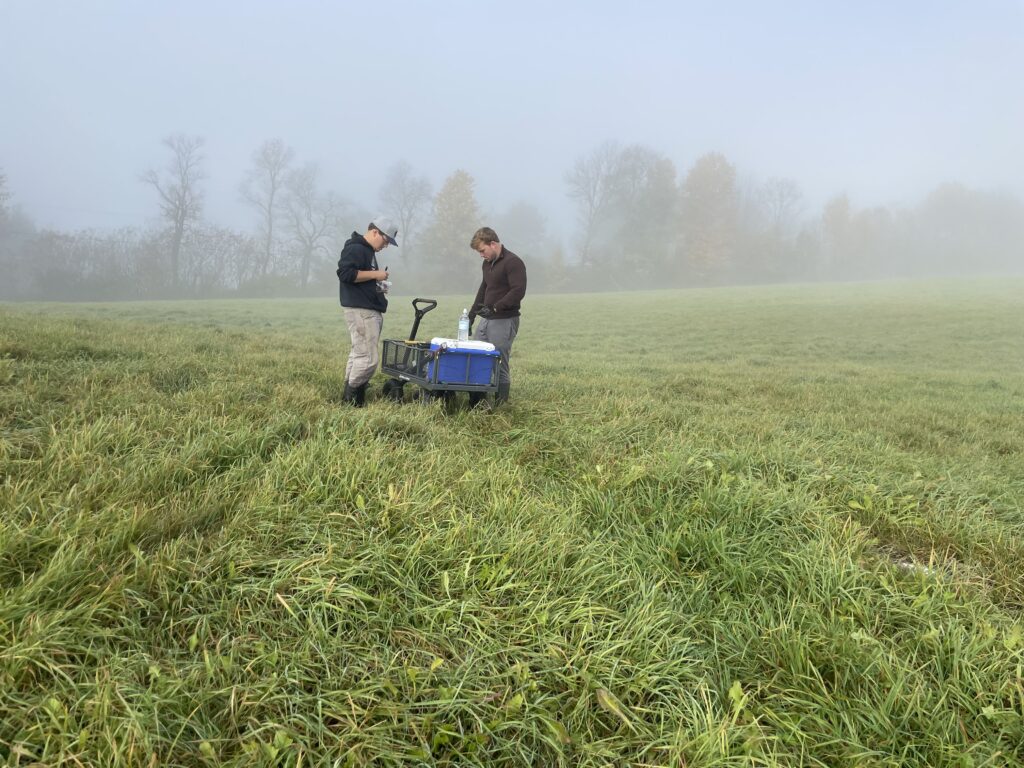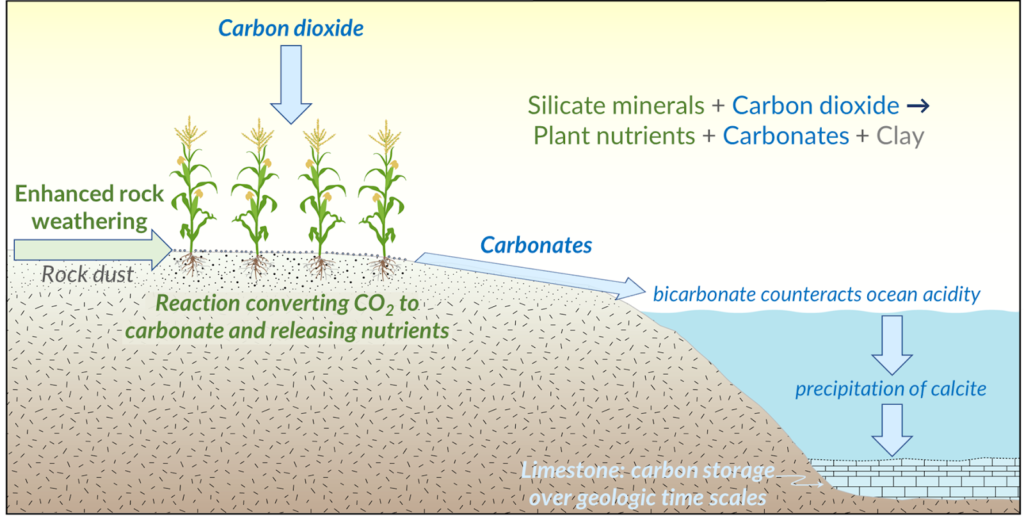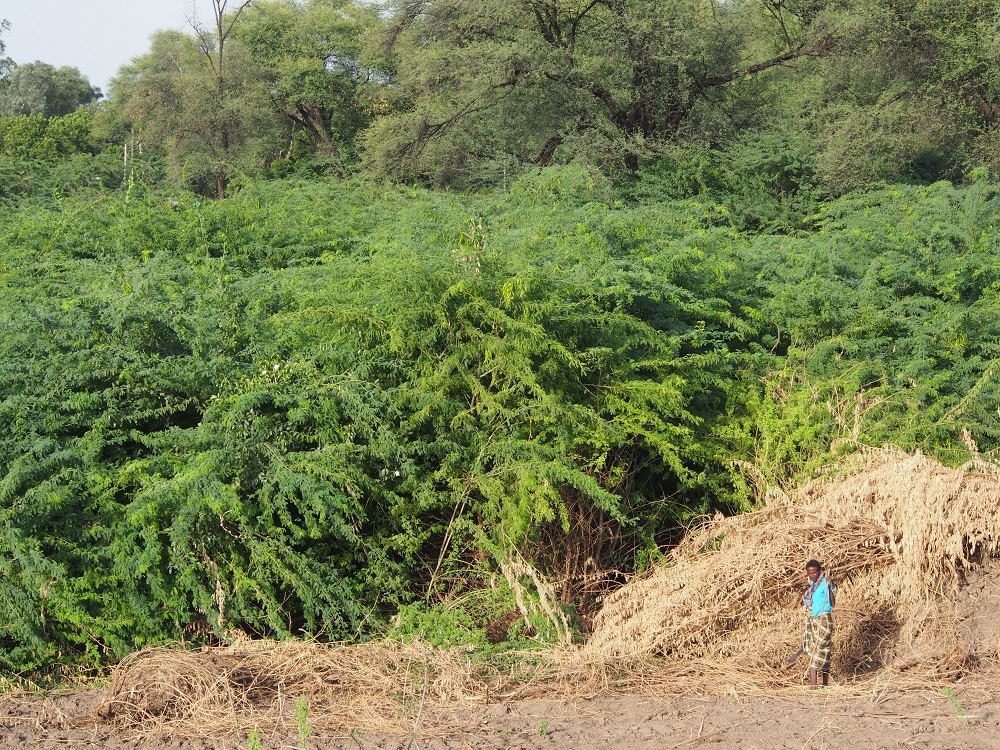Yale Research Team Uses Unique Natural Laboratory, a Watershed, to Study Enhanced Rock Weathering
Recently, Yale Professor James Saiers started a project at the Sleepers River Research Watershed focusing on how enhanced weathering can consume CO2 and how this process influences the biogeochemistry of the watershed.
5th Brazilian Congress of Remineralizers Conference
Event: V Congresso Brasileiro de Rochagem
Date: July 8 – 11, 2025
Location: Piracicaba, Brazil
Host organization: Luiz de Queiroz College of Agriculture, University of Sao Paulo
Seminar description: After 15 years of the realization of the 1st Brazilian Congress of Remineralizers, the theme of remineralization gained prominence in Brazil and in the world. Soil remineralizers (REM), are derived from silicate rocks and when properly used, improve soil conditions since they behave as multifunctional inputs (nutrient source, acid neutralization, colloid neofor...
OpenAir CDR Webinar Series explores the science, strategies, and policies of carbon dioxide removal
Event: Carbon Dioxide Removal Webinar Series
Date: Webinars in this series will run monthly through March of 2025. Stay tuned for more details on the last two webinars.
Location: Remote
Host organization: OpenAir Carbon Dioxide Removal
Seminar description: As the world navigates the necessary transition away from polluting fuels toward clean energy, most climate scientists acknowledge that we must also remove climate pollution that has already been dumped into the atmosphere.
The call for Carbon Dioxide Removal (CDR) grows stronger as new analyses find that ...
Free Online Seminar Series: Enhanced Rock Weathering in agriculture as a natural climate solution
Event: Enhanced Rock Weathering in agriculture as a natural climate solution
Date: Weekly on Mondays from 12-1 pm ET from January 27th to April 14th, 2024
Location: Remote
Host organization: Yale University
Seminar description: Enhanced rock weathering is a process where finely ground silicate and carbonate rocks are spread on agricultural soils. The breakdown of these rocks removes carbon from the air and stores it in soils and soil water, while providing a variety of other crop and soil benefits. While this carbon dioxide removal practice has gained a lot of ...
Rock Dust And Ocean Chemistry: Exploring Carbon Removal’s Potential and Perils
Rock dust applied in marine environments could become a meaningful addition to a portfolio of carbon dioxide removal techniques that collectively can help to mitigate climate change, says marine biogeochemist Lennart Bach.
From Kashmir to Chicago: Geological Survey of India’s Mir Takes ERW Vision Global
Senior geologist at the Geological Survey of India, Dr. Ishfaq Mir’s career has evolved from reconstructing past climates to addressing soil degradation and malnutrition caused by excessive pesticide use and synthetic fertilizers across India.
Call for Submissions: Journal Nutrient Cycling in Agroecosystems requests articles for upcoming special issue
Nutrient Cycling in Agroecosystems has recently announced that it is accepting submissions for an upcoming special issue of the journal dedicated to recent advances on enhanced rock weathering (ERW) as a land-based CO2 removal method in agroecosystems.
Unlocking Urban Rooftops for Carbon Capture in the Netherlands
An award winning organization in the Netherlands is on a mission to “green roofs” by using a composition of soil which reacts with the CO2 in the air, breaking it down and removing it permanently.
Liam A. Bullock
Carbon Neutral Initiative (CNI) introduced the Carbon Green Roof project to contribute to global climate goals of removing 10 Gigatonnes of CO2 from the atmosphere by 2030, and is a small part of their overarching plan to become the first bio-enhanced silicate weathering project in Europe.
Liam A. Bullock, a geochemist and geological consultant ...
Soil Remineralization, Climate Resilience, and Environmental Geochemistry: Insights from the 2024 Goldschmidt Conference
The 2024 Goldschmidt Conference took place from August 18-23 in Chicago, Illinois, and covered a broad range of topics, including innovative solutions to improving soil health, food security, and climate resilience.
Turning Invasive Plants into Agricultural Assets: Inside ISAP India’s Biochar Vision
Choosing mesquite as the primary material for biochar allows for the removal of this invasive species, enabling the restoration of the land for agricultural use.















